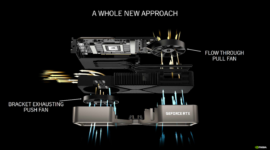The Polestar Precept, an electric sedan powered by Android, is going into production
In February 2020, Chinese electric vehicle (EV) company Polestar revealed a gorgeous sedan concept called the Precept that featured a stunning design along with an interior chock-full of sustainable material. But as with most concepts, it was not clear whether the Precept would ever be a real car. Polestar sweeps away that uncertainty by announcing that the seductive sedan will indeed be going into production.
Polestar started out as the performance sub-brand of Volvo and now has emerged as one of the more interesting Chinese EV companies on the market. Jointly owned by Volvo and Volvo’s parent company Geely, the company recently started delivering the Polestar 2, its electric sedan with native Android Automotive, to customers in Europe and North America. The company’s next car was supposed to be an SUV, the Polestar 3.
But now it seems Polestar will be making another sedan first. One of the best things about the Polestar 2 is that it is not an SUV. The Polestar 2 may be based on the Volvo XC40 platform, but unlike the Audi E-tron or the Mercedes EQC, the car is essentially a hatchback disguised as a sedan. But the fact that Volvo went with a vehicle that was not a pickup truck or SUV as its first battery-electric car is encouraging.
Also encouraging is Polestar’s commitment to sustainability.
When it was first released in concept form, Polestar laid out the Precept’s environmental bona fides. Interior panels and seat backs are made out of flax-based composites. Seats that have been 3D-knitted from recycled polyethylene terephthalate (PET) bottles. Bolsters and headrests made from recycled cork vinyl. And carpets made out of reclaimed fishing nets.
Consumers want to see change from the EV industry, not just dreams. Now, Precept becomes an even stronger statement. Polestar is committed to reducing the environmental impact of its cars and its business. The aim has to be climate neutrality, even though that is a long-term goal. The sedan will recognize the driver as they approach the car and automatically ready their favorite applications and settings.
Google Assistant would recognize more languages, including local accents, and be capable of more natural conversations. The grand coupe concept, which was meant for a Geneva Motor Show debut, got a digital launch instead when news broke in February 2020 that the European show had pulled the plug, as the covid pandemic escalated. Overall, the concept strikes as a distinct design in some ways, if not a tad sterile and robotic.
The Precept is meant to be a futuristic dream come true when it enters production.
Vehicle development is now underway, and it sounds like still some time away from actually seeing the first production model hit the streets.

